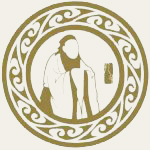Discover the World of Confucius and His Teachings
ConfuciusPedia provides comprehensive information about Confucius, Confucianism, Quotes, Books, followers, stories, and more!
“Do not do unto others what you would not want done unto you.”
—Confucius
The Founder of Confucianism
Overview
Welcome to this exceptional site, a gateway to the profound wisdom and rich culture of ancient China. Here, we celebrate Confucius’s teachings, the essence of Confucianism, and the inspiring stories of his esteemed disciples. Dive into Confucius’s timeless wisdom and guiding principles and be inspired by a curated selection of his most renowned quotes.
Embark on a journey to explore the talents, philosophies, and enduring legacy of Confucius and his followers.
Confucius’s Biography
Born during the Spring and Autumn Period, Confucius is ancient China’s greatest thinker and educator. Learn More
Confucianism
Confucius is the founder of Confucianism. He put forward the core propositions of Confucianism: Ren and Li. Learn More
Confucius’s Quotes
Confucius has many classic quotes covering different fields such as life, work, education, love, and success. Learn More
Confucius’s Disciples
Confucius taught more than 3,000 students during his lifetime. Among them, more than 70 were highly accomplished. Learn More
Confucius’s Books
As a great teacher, Confucius wrote six classic books. Until now, these books have profoundly affected China and the world. Learn More
Confucius’s Stories
The life of Confucius is legendary. He left Lu State (鲁国) twice and traveled around the different states to promote his political and educational ideas. Learn More
Why Do You Need to Know Confucius & Confucianism?
As an ancient civilization, China has a rich and colorful traditional culture. Such elements and crafts as Guqin, Weiqi, Calligraphy, Chinese painting, drama, and kung fu in Chinese conventional culture reflect Chinese people’s pursuits of self-cultivation and coincide with Confucianism’s key ideas.
In fact, Confucius put forward these concepts and propositions more than 2,500 years ago, permeating every aspect of Confucianism. The most basic idea of Confucianism and Confucianism is to cultivate one’s moral character, continuously improving moral quality, knowledge, and skills via introspection and practical activities to deliver personal and social goals.
There are far more ideas of Confucianism. Chinese traditional culture also goes far beyond the characteristic of self-cultivation. Therefore, studying Confucius and Confucianism helps better understand the traditional Chinese culture and behaviors of Chinese people.
